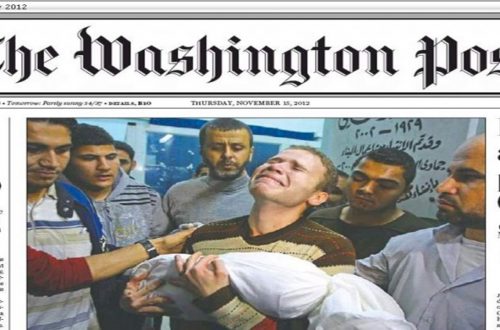This is a cross post from Though Cowards Flinch
I went to go and see the controversial Jazz musician Gilad Atzmon yesterday at The Vortex in Stoke Newington. The music, it has to be said, was wonderful, but he has a way with words which does not always sit well with many.
For someone previously on record for having said burning down synagogues is a “rational act” and Nazi ideology is comparable to what he refers to as “Jewish ideology”, in front of a predominantly Liberal and Middle Class audience one would expect he toned down the jibes in line with these group’s typical sensitivities.
This was not to be. At one point in the evening, after many discussionettes on Palestine and Jews, he told the audience that his drummer, to his left, had wanted to open a jazz bar in Golders Green (an area of London which has a large Jewish population) and call it “Jazz Chamber”. This type of rise was perhaps even too rich for some in the audience, many of whom were audibly shocked he’d be so avowedly offensive – especially given his record.
This was what I raised when I caught up with him after the show. He had just finished talking to a girl who I overheard as saying her Grandfather was in a concentration camp, to which he laughingly replied “oh, I thought you meant as a member of the Gestapo”. I asked him that given what we have about him on paper, and his previous headline quotes, are jokes like the “Jazz chamber” one a good move?
He told me he “had a right to tell such jokes” and that he sees it as his duty to charge against the “political correctness” of the age.
He told me his book, The Wondering Who, is “the most controversial book in history”, explaining that the content concerns the many identities of Jews, religious-based, race-based, neither of which he has beef with, but that the Jewish religion has become secularised, and this is what he opposes.
After pointing out that many anti-Zionists have got across their message in a non-controversial way, he said “but I am not just an anti-Zionist, I am opposing Jewish politics, not Jews”.
The way in which this attracts controversy is how Jewish politics is described by Atzmon. But also statements about the rationality of burning synagogues comes with the expected baggage that can not, and should not, be overlooked.
So why have the usually complacent-with-dodgy-people-with-dodgy-politics-on-Jews, the Socialist Workers’ Party, been keen to neglect him too? After he told me he had various followers of his politics in this country, and I had pointed out there were many more who didn’t, including the far left, he told me “anyone with progressive politics acts with a certain ‘chosenness’ themselves”.
Through jokes, blunt statements and book-length polemics, Atzmon’s obsession seeps out in a constant rampage. Musically, we must do as we do with Wagner and listen to the sounds, not the views of the man behind them, but it is hard not to be very wary of the rhetoric of a man so hung up on one people.


